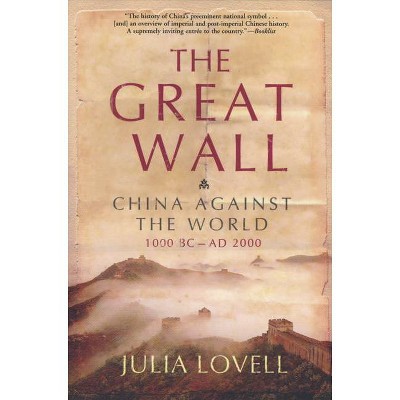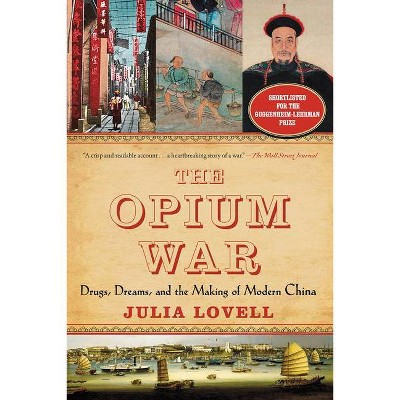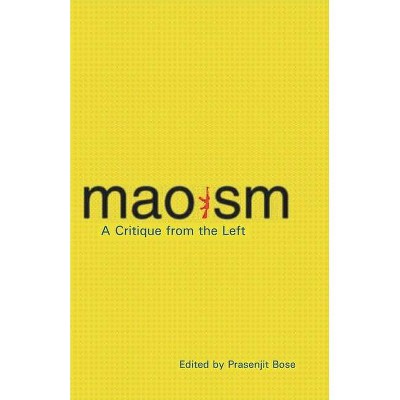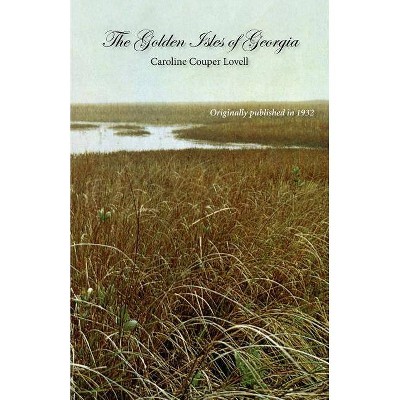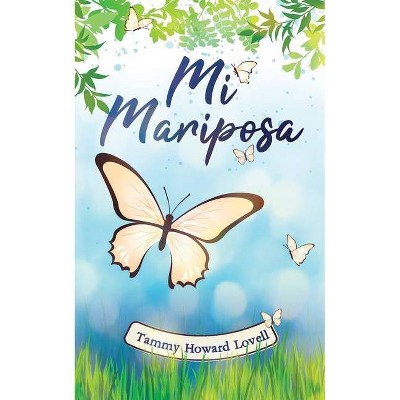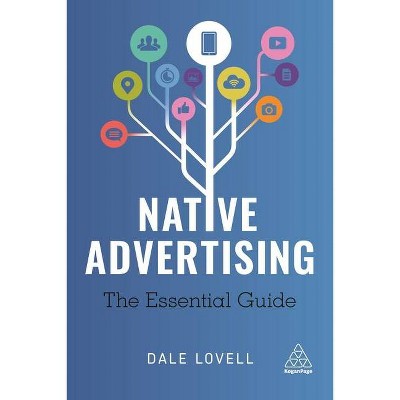Maoism - by Julia Lovell (Paperback)
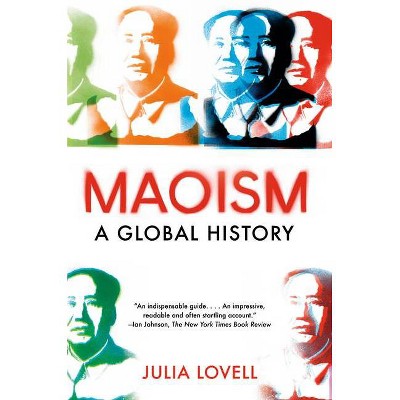
Similar Products
Products of same category from the store
AllProduct info
<p/><br></br><p><b> Book Synopsis </b></p></br></br><b>*** WINNER OF THE 2019 CUNDILL HISTORY PRIZE</b><br><b>SHORTLISTED FOR THE BAILLIE GIFFORD PRIZE FOR NON-FICTION 2019</b><br><b>SHORTLISTED FOR THE NAYEF AL-RODHAN PRIZE FOR GLOBAL UNDERSTANDING</b><br><b>SHORTLISTED FOR DEUTSCHER PRIZE</b><br><b>LONGLISTED FOR THE 2020 ORWELL PRIZE FOR POLITICAL WRITING***</b><br><b><br>'Revelatory and instructive... [a] beautifully written and accessible book'</b> <i>The Times</i> <p/>For decades, the West has dismissed Maoism as an outdated historical and political phenomenon. Since the 1980s, China seems to have abandoned the utopian turmoil of Mao's revolution in favour of authoritarian capitalism. But Mao and his ideas remain central to the People's Republic and the legitimacy of its Communist government. With disagreements and conflicts between China and the West on the rise, the need to understand the political legacy of Mao is urgent and growing. <p/>The power and appeal of Maoism have extended far beyond China. Maoism was a crucial motor of the Cold War: it shaped the course of the Vietnam War (and the international youth rebellions that conflict triggered) and brought to power the murderous Khmer Rouge in Cambodia; it aided, and sometimes handed victory to, anti-colonial resistance movements in Africa; it inspired terrorism in Germany and Italy, and wars and insurgencies in Peru, India and Nepal, some of which are still with us today - more than forty years after the death of Mao. <p/>In this new history, Julia Lovell re-evaluates Maoism as both a Chinese and an international force, linking its evolution in China with its global legacy. It is a story that takes us from the tea plantations of north India to the sierras of the Andes, from Paris's fifth arrondissement to the fields of Tanzania, from the rice paddies of Cambodia to the terraces of Brixton. <p/>Starting with the birth of Mao's revolution in northwest China in the 1930s and concluding with its violent afterlives in South Asia and resurgence in the People's Republic today, this is a landmark history of global Maoism.<p/><br></br><p><b> Review Quotes </b></p></br></br><br>Written with wit and insight... Ms. Lovellsuggests that we trivialize or ignore Maoism at our own peril if we cherish individual rights andfree expression. We were proud to award her book this year's Cundill History Prize.<br><b>--Alan Taylor, <i>Wall Street Journal</i></b> <p/>"[Maoism's] history has not been adequately told in one sweeping, accessible book -- until now... [Lovell's] new book covers a vast amount of ground... The book's greatest strength is its scope. Lovell traveled widely, used archives and conducted interviews in many countries and synthesized the work of scholars in the growing field of global Cold War studies. She demonstrates how Maoism was more than an amorphous idea, but a strategy pushed by China... These are big, hefty chapters, making the book an indispensable guide... An impressive, readable and often startling account of an era that seems so far from our own."<b>--Ian Johnson, <i>New York Times Book Review</i> <p/></b>Highly readable... Impressive... Well-researched... Ms. Lovell's account of the Maoist cult in Europe is sound, and damning... <i>Maoism </i>is entertainingly written and beautifully produced.<b><b>--George Walden, <i>The Wall Street Journal</i></b><br></b> <p/>Julia Lovell has given us a masterful corrective to the greatest misconception about today's China. For too long, visitors who marveled at China's new luxuries and capitalist zeal assumed that Maoism had gone the way of its creator. That was a mistake. Lovell's account--eloquent, engrossing, intelligent--not only explains why Xi Jinping has revived some of Mao's techniques, but also why Mao's playbook for the 'People's War' retains an intoxicating and tragic appeal to marginalized people the world over.<b>--Evan Osnos, National Book Award-winning author of <i>Age of Ambition</i></b> <p/>A landmark work giving a global panorama of Mao's ideology filled with historic events and enlivened by striking characters.<b>--Jonathan Fenby, author of <i>The Penguin History of Modern China <p/></i></b>Surprisingly, the story of Maoism outside China has never been told. Now, at last, we have this scintillating, sweeping narrative. It is a book packed with jaw-dropping stories, told with the pace and punch of a thriller. Chilling, but exhilaratingly readable, as a warning from history this book could not be more timely.<b><b>--Michael Wood, historian and broadcaster <p/></b></b>An exciting and eye-opening account of Maoism's worldwide spread.<i><b>--The Daily Telegraph</b> <p/></i>Exceptional...[H]arrowing, fascinating and occasionally hilarious...Smooth and cautious, almost wily in how the awful and the unbelievable are counterpointed.<i><b>--Scotland on Sunday</b><br></i><br><p/><br></br><p><b> About the Author </b></p></br></br>JULIA LOVELL is Professor of Modern China at Birkbeck College, University of London. She is the author of<i> The Great Wall </i>and <i>The Opium War, </i>which won the 2012 Jan Michalski Prize. Her many translations of modern Chinese fiction into English include <i>The Real Story of Ah Q and Other Tales of China. </i>She writes about China for several newspapers, including<i> The Guardian, Financial Times, The New York Times</i> and<i> The Wall Street Journal.</i>
Price History
Price Archive shows prices from various stores, lets you see history and find the cheapest. There is no actual sale on the website. For all support, inquiry and suggestion messagescommunication@pricearchive.us
